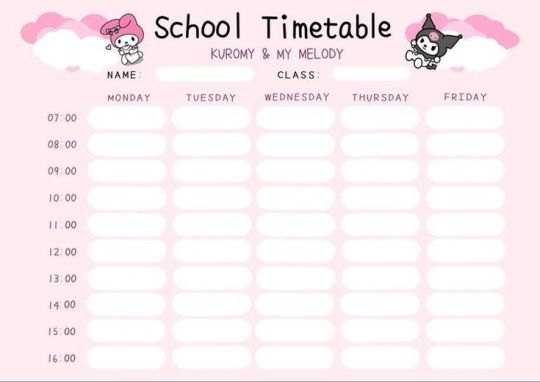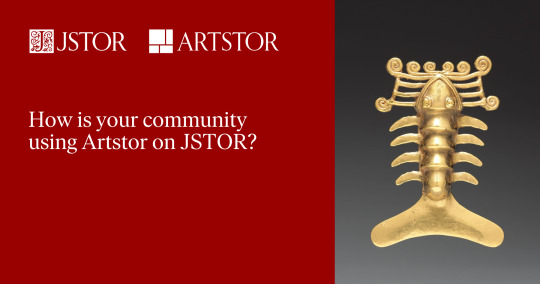#resources academics
Text
"But if college was free, then people would abuse that and get useless degrees" hell yeah I would! If I could go to college without debt I would make it my job to get a degree in every little thing that interested me. I'd get a doctorate in film studies. I'd have a bachelor's degree for every science I like. I'd try to learn at least 5 languages with varying results. I would learn something "useful" like coding and then follow it up with a ""useless"" degree like art history. I'd be the world record speed run holder for getting every degree possible.
But I can't afford college without going into massive debt, so instead I spent the last 5 years trying to figure out what I am passionate enough about to consider going into debt over, because unfortunately being passionate about everything is extremely expensive to pursue.
#simon says#i love learning so much and I hate the USA's college debt system#once they make that shit free I will be unstoppable#this topic sprung up because I had the idea that im very academic and annoyingly analytical that I might as well get a degree in it#because without a degree you just seem like an autistic asshole#but with a degree? then you look like a CREDIBLE autistic asshole#don't worry I will still learn but I still want that funky piece of paper to tell everyone I learnt it#also there's some things that are VERY difficult to learn#like I would love to persue this topic further but unfortunately I would need help with that#also before you say 'try taking [blank] classes instead! it's less expensive than a degree!' im broke#my only learning resource is the library sorry about that#also this is not the post to give me unwarranted financial advice#finances are one of the topics I DO NOT care about and I WILL NOT listen to a word you say
18K notes
·
View notes
Text
WWC’s A Beginner’s Guide to Academic Research
We are pleased to present WWC’s A Beginner’s Guide to Academic Research!
This pandemic project has been over 2 years in the making and we hope it will greatly assist any of our readers who are eager to conduct in-depth research but may be at a loss where to start.
Go to the Guide Here
The guide is split into 6 parts:
Introduction and Table of Contents
Part 1: Getting Started
Part 2: Searching for Sources Online
Part 3: Evaluating Sources
Part 4: Navigating Academic Sources
Part 5: Recognizing Your Limits
Each portion of the guide has links to connect to the previous and next sections. While it is possible to view tumblr pages on phones and tablets through the app, we highly recommend viewing this guide via browser on desktop whenever possible. Tumblr page formatting is better suited for browsers and each section is very dense with information, which will make scrolling in the app or on your dashboard difficult.
Future FAQ/ Discussion:
As noted in part 5 of the guide, for the next two weeks, we will be keeping an eye on the notes for this post. If you have further questions or comments about academic research, drop them here and we will select the most pertinent to respond to in a later post.
If you find this guide helpful, we request that you consider tipping the moderators below for the work and time required from conception, to drafting, formatting and debugging. Their ko-fis are listed below:
Rina: https://ko-fi.com/arcanabean
Marika: https://ko-fi.com/5h1njuu
5K notes
·
View notes
Text
academic resources⋆.ೃ࿔*:・📄

to be your best, pink academia, academic weapon, it girl self. this will be updated continuously ✨
PRINTABLES ;


TUMBLR POSTS ;
how to get good grades without excessive studying - by yours truly
ways to romanticize school - @4theitgirls
studying methods + tips - by yours truly
youtube channels to help u out this semester - @4theitgirls
creating a study schedule and routine - @prettieinpink
how to study like rory gilmore - @itgirldiary
my studying plans as an accounting major - @iluvprettygirls
citation resources - @workitgurl
APPS AND WEBSITES ;
forest - studying timer
quizlet - studying tool (flashcards)
khanacademy.org
coursera.org
annualreviews.org
google scholar - research
google calendar - organization
notion - organization
#advice#it girl#becoming that girl#that girl#it girl energy#honeytonedhottie⭐️#pink academia#academic weapon#academic validation#studying#studying tips#studyblr#study aesthetic#study motivation#resources💬🎀#girly tumblr#dream girl#dream girl tips#dream life#girl blog#girl blogging#study methods#studyspo#light academic aesthetic#highschool
545 notes
·
View notes
Text

🎨 📚 Instructors, librarians, and researchers—how do you use Artstor on JSTOR? From enhancing lessons to enriching research, we want to hear your stories about visual learning!
Share your thoughts by filling out the Google Form.
Let's celebrate the power of visual resources in education and research! 🌟
Image: Costa Rica, Diquís region. Lobster pendant. Cast gold. c. 1000–1500. Part of the Cleveland Museum of Art.
#jstor#artstor#research#instructors#librarians#art history#art#visual resources#academic research#academia#education#higher education
278 notes
·
View notes
Text
getting around academic paywalls for papers, and sometimes books
if you have already found a paper or book you want to read, here's some ways to get behind the paywall. researchers do not get any money from publishers of academic papers so many of them will be very happy to give you a copy of their work if you email the academic in question.
the first method maybe blocked in some countries so you may need a vpn. i rec protonvpn, which has a free plan that does not keep any logs.
1. Using SciHub (reliable, but hasn't got many new papers)
a. On a desktop/laptop device
Install the SciHub X Now extension. Clicking the icon of the extension on most academic paper pages leads to it automatically reloading that page with a pdf version of the paper if it is available.
On Firefox:
On Chrome (please switch to firefox if you can! Chrome is set to block adblockers and extensions like this soon.)
b. If you're on a mobile device
Find the DOI or digital object identifier (a persistent identifier or handle used to uniquely identify various objects, standardized by the ISO.) It looks like a bunch of numbers with dots and slashes separating them a bit like this: 10.1109/5.771073.
Go to https://sci-hub.se/ and paste the DOI in its search bar.
2. Using Nexus (new papers and books! better search but is a little slow and buggy)
Nexus is a newer project that borrows logins from users with institutional access, it also aggregates other shadow libraries like libgen so you can find books as well.
a. Telegram Bot: If you already use telegram, the nexus search bot is very intuitive. Copying the name of the paper will do a decent search.
https://t.me/science_nexus_bot
b. Using the website: Has pretty good search, paste the name, authors, DOI whatever you want.
there are extensions that work similarly to schihub-x-now but they don't have a lot of users and are a bit experimental so I will not be recommending them here.
#open access#piracy#resources#tutorial#how to#my mom signed up for a correspondence course with a research component#i realised most people don't know how to get around academic paywall
385 notes
·
View notes
Text
Hey folks, just dropping some resources here for those of you who, like me, are always on the hunt for free reading material, whether it's for research or just to satisfy your curiosity. Check these out:
Library of Congress: Absolute goldmine for academic researches and historical documents. You can spend hours diving into their collections.
Z-library: A treasure trove of books, articles, and papers on pretty much any topic you can think of. Quick downloads, no fuss.
Project Gutenberg: Free e-books galore, especially if you're into classics. Saved me from many a boring commute.
Internet Archive: A digital library offering free universal access to books, movies, and music, plus archived web pages. Endless hours of browsing joy.
Google Books: Sometimes you just need a quick peek inside a book without committing to buying it. Google Books has got your back.
Google Scholar: It scours through scholarly sources, journals, theses, and more. Just be ready to sift through some dense material.
JSTOR: Another heavyweight in the academic world. JSTOR is packed with scholarly articles, books, and primary sources across various disciplines. Some stuff may be behind a paywall, but there's still plenty to explore for free.
Newspaper Archive: Want to browse through historical newspapers? This site has a massive collection spanning centuries and covering a wide range of topics. Perfect for digging up primary sources.
Newspapers.com: Need more historical newspapers? Look no further.
Perseus Digital Library: Focuses on ancient Greco-Roman materials, perfect for those deep dives into classical history.
Digital Public Library of America: Another treasure trove of digitized materials, including photos, manuscripts, and more.
Europeana: European cultural heritage online. Images, texts, the whole shebang.
DOAJ: Open access journals. DOAJ indexes and provides access to high-quality, peer-reviewed open access research journals.
Open Library: Another digital library offering over 1.7 million free eBooks.
Librivox: Audiobooks for when your eyes need a break.
National Archives (UK): Offers access to a wealth of historical documents, including government records, maps, photographs, and more.
Sci-Hub: For the rebels. Access to scholarly articles.
Directory of Open Access Books (DOAB): Looking for free scholarly books? DOAB has got you covered with a vast collection.
Digital Commons Network: Free, full-text scholarly articles from hundreds of universities and colleges worldwide.
Directory of Open Access Repositories (OpenDOAR): Find open access repositories worldwide.
Gallica (Bibliothèque nationale de France): French flair for your research.
DigitalNZ: Your gateway to New Zealand's digital heritage.
#college life#study#resources#history nerd#anthropology#online learning#academic life#ResearchResources#DigitalArchives#free books#free#digital#archives#libraries#academic#research#books
121 notes
·
View notes
Text
First stress token......Gorgug baby tread so carefully tread so carefully my guy NO A NAT 1 ISNT CAREFUL AT ALL SECOND ONE FOR A 20 YES GORGUG!!!!!! OH THANK GOD
#dimension 20#fantasy high#fhjy#fhjy spoilers#academic resource??#thats sick#whatva fucking rollercoaster holy shit
54 notes
·
View notes
Text
You are unique⭐️
Allow yourself to be liked by not everyone. Allow yourself to be not for everyone. It's okay when someone doesn't like you. Tastes are individual. You are an individual. And your beauty, external and internal, is not for everyone, it is unique. ✨🤍
#advice#it girl#becoming that girl#that girl#it girl energy#honeytonedhottie⭐️#academic validation#studyblr#study aesthetic#resources💬🎀#girly tumblr#dream girl#dream girl tips#dream life#girl blog#girl blogging#light academic aesthetic#girlhood#girlblogging#healing#healthcare#mindset#healthy#unique
49 notes
·
View notes
Text
Today I taught a friend that even if you aren't educated at a higher level, you don't have to let that get in the way of getting academic resources on your special interests.
Universities serve an important purpose, for sure. But the main advantages they possess when it comes to distribution of information comes down to access to resources (be they texts, labs, galleries, tools, documents, etc) and guidance (via tutors, teachers, etc).
So if you can't actually get into higher education, you might find accessing information difficult, as it is behind a paywall, textbooks cost upward of a few hundred, and even the information you can access might not be in a format you can clearly understand.
What very few people realise is that you can bypass all of that by finding the contact email of an academic in the field you are interested in, and asking them if they can send you any information on the topic at hand.
Case in point, a friend of mine in HEMA happens to be a scientist in a field that's become highly relevant since 2020. Not naming them here, but you can find a lot of their work online. I don't really understand their field, but I asked if they would either direct me to where to purchase their publications, or if they could send me any. They told me they'd just send it for free, and would for anyone that asked. This person has worked on some very interesting stuff relevant to current world affairs, they work for a top academic institution, and they'd just *give me* stuff you'd probably have to pay to access, just because I asked.
Academics are nerds, and they like to talk about their field and subjects. If you can find one that aligns with your interests, literally just ask them anything you want, and they will probably hand you what information they have. I cannot stress how much they probably would love for you to do that. Better yet is that of you don't understand the language they use for a certain topic, chances are they will give you the abridged version just to let you be included.
So if you've ever felt like you wanted to learn something but couldn't find a way to access the information, this is the sign you should absolutely contact a person in that subject and (politely!) ask them if they can send you a resource on said subject.
#rambles#look i love talking about history but Im not a serious academic#but EVERY academic I know loves to talk about their field#so just ask them for resources
852 notes
·
View notes
Text
Things I did last semester that boosted my average:
I don’t really like to toot my own horn but I see these posts a lot and I thought I’d share what really worked for me personally :)
•took both handwritten and typed notes (minimized hand fatigue so my notes were actually good lol) (also it’s far easier to take extensive notes and delete them later than to take minimal notes and be stuck trying to remember what was said)
•before an exam: created flashcards, diagrams, and rewrote or fleshed out notes on a word doc in a simulated exam atmosphere to enhance later recall
•planned a month at a time so I knew in advance when I could socialize and when I had to Grind™️ to prevent burnout
•made friends in my classes!! genuinely makes a big difference
•annotated the hell out of everything (pencil or post in textbooks to resell, pen and highlighters in books I knew I’d keep, all online readings were converted to PDFS and I scribbled all over them)
•annotated with jokes this is maybe unorthodox but I swear it worked for me- I’d laugh at the wording, draw emojis, reference memes, and crack jokes in the margins of my books and it made it so much easier to remember key points of the readings later on
•cut off toxic friends. self explanatory lol but stress impacts your grades!
#my posts#bobastudy#studyblr#academia#study tips#study with me#light academia#psych major#english major#canadian studyblr#aesthetic#double major#academic weapon#study like granger#study resources#studyblr resources#abt to start a summer course so I’m in ✨study mode✨#lol#gpa
196 notes
·
View notes
Text
I just finished my (???) rewatch of season 1 and I’m restarting season 4 and I genuinely think I have developed a narrative that explains the supernatural elements and it started because I WAS GOING THROUGH MY BOOKSHELF TODAY FOR INSPO TO WRITE THIS FUCKING FIC AND I OPENED A BOOK I HAVE NEVER READ— WHICH I BOUGHT IN A CREEPY SECOND HAND STORE YEARS AGO BTW— AND UPON SKIMMING I OPENED TO A PAGE WITH A HORNED GOD

AND THEN I STARTED RESEARCHING AND I SWEAR TO GOD I HAVE A THEORY I SWEAR TO GOD IM ON SOME SHIT RIGHT NOW IM PROCESSING BY SPEWING NONSENSE AT MY FRIEND BUT I SWEAR ITS GONNA MAKE SENSE

#I’m gonna have to consult the academically reviewed resources#Reddit and Wikipedia#but I don’t think anyone has threaded the theory to completion AND IM FLOSSING MY FUCKING TEETH WITH IT#RIGHT NEEEEOOOOW#holy fuck holy fuck once I get this fully formed im going to create the most incomprehensible Reddit post#fuck fuck fuck#rust cohle#true detective season 1#true detective season 4#I see everything#I SUHWEAAAR IM ONTO SOMETHING MAJOR#JUST GIMME ANOTHER WEEK CAPTAIN#mentally I’m a chain smoking detective that’s stabbing my thumb meat on a push pin#FUCKKKK#I can’t wait to get downvoted#I can’t wait for a 43 year old divorced father to tell me I’m a moron#trash bin tag
31 notes
·
View notes
Text
Currently researching for a paper I have to write before I can get back to working on MY writing, and I just realized that JSTOR and any other database for journal articles/book chapters or even the online catalogue of my university’s library would be so much easier to navigate if they tagged their entries as if they were on AO3.
Like this.

#i crack myself up#desperation who#this is so badly edited but i think it’s funny#lizzi talks#ao3#romeo and juliet#because finding academic resources is hard sometimes#welcome to the life of a college student#i’m dying
20 notes
·
View notes
Text
Last Chance for Questions on our Academic Research Guide!
At the beginning of the month, Writing With Color published A Beginner's Guide to Academic Research.
Some of you might have questions or comments about academic research, researching for creative writing, or the guide itself. How did we do? Did we miss anything? We will be going over your questions in a Q&A post in the coming days.
Please enter your questions in the notes of this announcement post here!
Share this post with anyone who might be looking for help researching for a creative project or for school!
We'll catch up with you soon.
- WWC Research Guide team
#guides#research#academic research#reference#resources#creative writing#writeblr#writing advice#school#study guide
270 notes
·
View notes
Text
Do you guys have any tips or resources for students with ADHD? There's a girl in my dorm who is dear to me and who's seriously struggling in her studies and really needs to pass this semester. It's taken a bit of a toll on her heart and her mind, not being able to focus and finish tasks and do well in her studies, so if you guys know of anything that's been particularly helpful, I would appreciate it so, so much.
#if you can please pray for X too! she's a tough-as-nails girl who wants to sort things out on her own and finds it really hard to ask for h#help so the fact that she even opened up to me says a lot about how much she's been struggling#i know some of y'all have ADHD/have loved ones with ADHD so i thought i might ask#i have mild ADHD and it hasn't seriously interfered with my studies but come to think of it i'd probably appreciate and benefit from any st#study tips/resources too lol it hasn't been the smoothest academic journey for me either#but more to the point: i didn't realize how much X was struggling :'( so if you know of anything i would appreciate it so so much!
41 notes
·
View notes
Text

Hey, so about those JSTOR hats...
For a VERY limited time, you can sign up for a one-year JSTOR Daily Patreon membership at the $15 level and get a JSTOR hat! 🧢
Remember, you must sign up for the ANNUAL membership to receive a hat. Members who pay for this tier monthly will not receive a hat.
There are only 50 available, so get them while you can 🫡
#jstor#jstor daily#jstor merch#patreon#hats aside please support jstor daily and their research-backed articles! it's a well-loved resource for academics and independent research#and membership helps to keep this going
248 notes
·
View notes
Text
The Bewilderment That Words Can Be
Everyone uses words. But the way writers make the same words cascade in such an ostentatious manner makes me smile. Smile at the foolishness of people who take for granted these weapons, called 'words', which can either tear one apart or bring one back from hell.


#books & libraries#classic academia#literature#booklover#writing help#writing resources#dark academic aesthetic#currently reading#quotes#writing advice#dark academia#poets on tumblr#writers on tumblr#writers and poets#writerscommunity#writeblr#writer stuff#words#my words#quote#lit#poetry#spilled words
21 notes
·
View notes